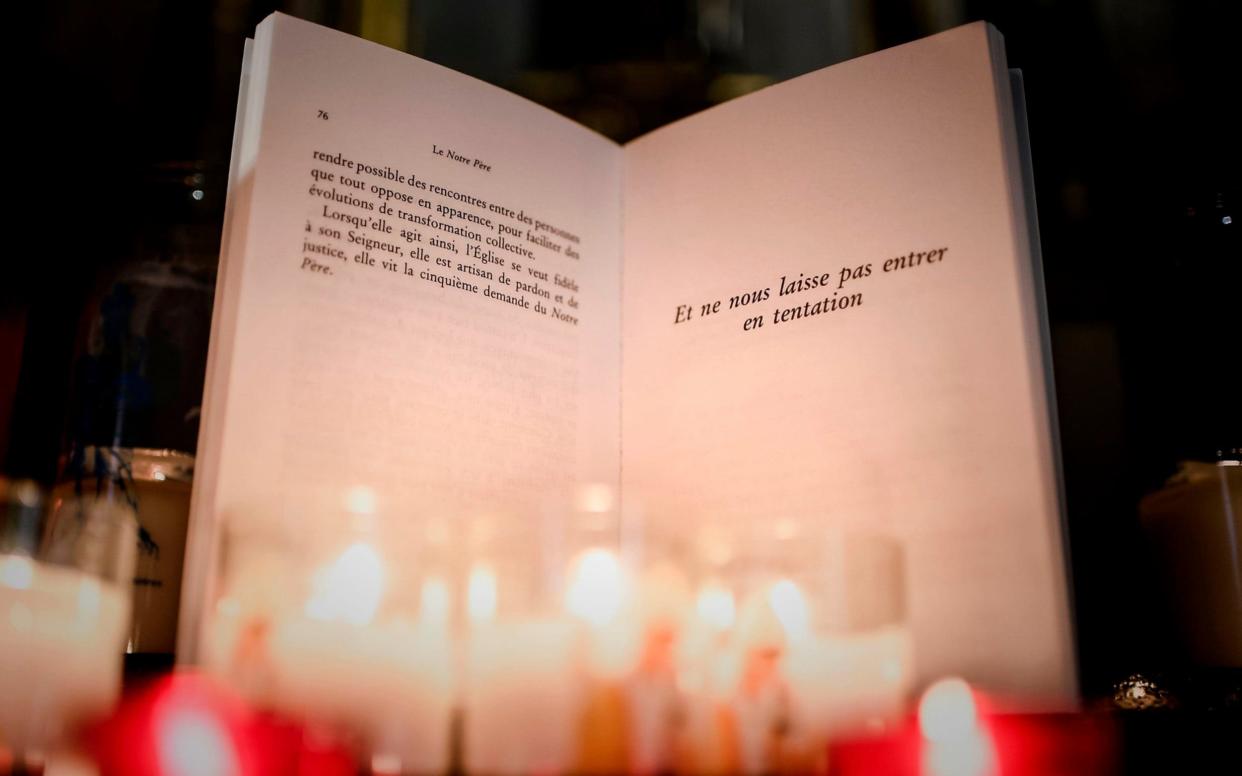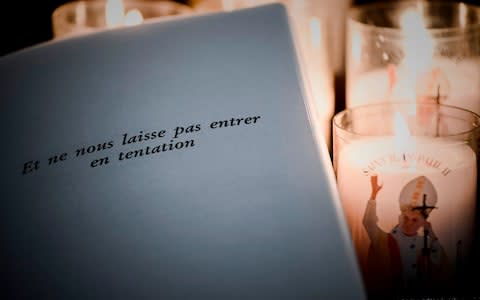God can no longer lead sinners astray in new French Lord's Prayer

Churchgoers in France will start reciting a new version of the Lord's Prayer on Sunday in which God will no longer have a direct hand in leading them to commit sins.
For decades, the French have been used to chanting the Gallic version of "Lead us not into temptation", which translates as "Ne nous soumets pas a la tentation" (Do not submit us to temptation).
Starting on Sunday, the first day of Advent, priests will call on French worshippers to ask the Almighty: "Ne nous laisse pas entrer en tentation" (Do not let us enter into temptation) - thus shifting the emphasis of sin more onto the sinner.
Debate between theologians on this line has long been the subject of long, tortuous debate, which dragged on for 17 years. Some insist that it is preposterous to suggest that God could do the devil's work; others have even branded the idea downright blasphemous.
The current ambiguous translation has been used since 1966, after the modernising Second Vatican Council open the door to the use of the vernacular instead of Latin in Catholic masses the world over.

The original version was in Greek by the apostles Matthew and Luke, who were themselves translating the words of Jesus speaking in his native Aramaic.
"In itself the translation wasn't wrong, but the interpretation was ambiguous," Monsignor Guy de Kerimel, the French Catholic Church's chief liturgist told AFP.
The new version is due to be adopted in the Roman Missel, but tired of waiting for its release in 2019, French priests took the liberty to introduce it a year early.
It has been adopted both by Catholics and France's much smaller Protestant Church.
Yet not everyone has welcomed the change. The national council of evangelicals of France, CNEF, agreed that it better avoids the idea that God "is somehow responsible for temptation but it waters down God's sovereignty".
Also unhappy was traditionalist French Catholic priest Guillaume de Tanoüarn who said that "faith is a struggle" and doesn't spring from "a world of metaphysical teddy bears".
Raphaël Enthoven, a high-profile French philosopher, claimed that the French Church had decided to airbrush out the word "soumission" (submission) to avoid any comparisons with Islam, which means submission - a claim dismissed as "sad and ridiculous" by French bishops' spokesman Monseigneur Olivier Ribadeau Dumas. Mr Enthoven later withdrew the claim and apologised.
The Lord's Prayer is the the one that most Christians know by heart. "There's going to be some mumbling for a while" as worshippers adjust to the new words, Mr Kerimel said.

